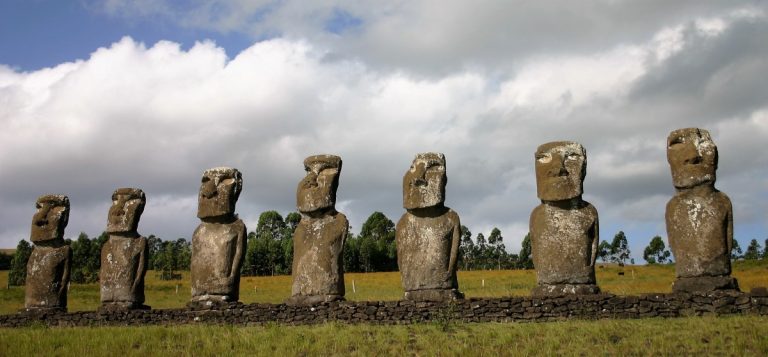Laws About Sacrifices
15 The LORD spoke to Moses, saying, “Speak to the people of Israel and say to them, When you come into the land you are to inhabit, which I am giving you, and you offer to the LORD from the herd or from the flock a food offering or a burnt offering or a sacrifice, to fulfill a vow or as a freewill offering or at your appointed feasts, to make a pleasing aroma to the LORD, then he who brings his offering shall offer to the LORD a grain offering of a tenth of an ephah of fine flour, mixed with a quarter of a hin of oil; and you shall offer with the burnt offering, or for the sacrifice, a quarter of a hin of wine for the drink offering for each lamb. Or for a ram, you shall offer for a grain offering two tenths of an ephah of fine flour mixed with a third of a hin of oil. And for the drink offering you shall offer a third of a hin of wine, a pleasing aroma to the LORD. And when you offer a bull as a burnt offering or sacrifice, to fulfill a vow or for peace offerings to the LORD, then one shall offer with the bull a grain offering of three tenths of an ephah of fine flour, mixed with half a hin of oil. And you shall offer for the drink offering half a hin of wine, as a food offering, a pleasing aroma to the LORD.
“Thus it shall be done for each bull or ram, or for each lamb or young goat. As many as you offer, so shall you do with each one, as many as there are. Every native Israelite shall do these things in this way, in offering a food offering, with a pleasing aroma to the LORD. And if a stranger is sojourning with you, or anyone is living permanently among you, and he wishes to offer a food offering, with a pleasing aroma to the LORD, he shall do as you do. For the assembly, there shall be one statute for you and for the stranger who sojourns with you, a statute forever throughout your generations. You and the sojourner shall be alike before the LORD. One law and one rule shall be for you and for the stranger who sojourns with you.”
The LORD spoke to Moses, saying, “Speak to the people of Israel and say to them, When you come into the land to which I bring you and when you eat of the bread of the land, you shall present a contribution to the LORD. Of the first of your dough you shall present a loaf as a contribution; like a contribution from the threshing floor, so shall you present it. Some of the first of your dough you shall give to the LORD as a contribution throughout your generations.
Laws About Unintentional Sins
“But if you sin unintentionally, and do not observe all these commandments that the LORD has spoken to Moses, all that the LORD has commanded you by Moses, from the day that the LORD gave commandment, and onward throughout your generations, then if it was done unintentionally without the knowledge of the congregation, all the congregation shall offer one bull from the herd for a burnt offering, a pleasing aroma to the LORD, with its grain offering and its drink offering, according to the rule, and one male goat for a sin offering. And the priest shall make atonement for all the congregation of the people of Israel, and they shall be forgiven, because it was a mistake, and they have brought their offering, a food offering to the LORD, and their sin offering before the LORD for their mistake. And all the congregation of the people of Israel shall be forgiven, and the stranger who sojourns among them, because the whole population was involved in the mistake.
“If one person sins unintentionally, he shall offer a female goat a year old for a sin offering. And the priest shall make atonement before the LORD for the person who makes a mistake, when he sins unintentionally, to make atonement for him, and he shall be forgiven. You shall have one law for him who does anything unintentionally, for him who is native among the people of Israel and for the stranger who sojourns among them. But the person who does anything with a high hand, whether he is native or a sojourner, reviles the LORD, and that person shall be cut off from among his people. Because he has despised the word of the LORD and has broken his commandment, that person shall be utterly cut off; his iniquity shall be on him.”
A Sabbathbreaker Executed
While the people of Israel were in the wilderness, they found a man gathering sticks on the Sabbath day. And those who found him gathering sticks brought him to Moses and Aaron and to all the congregation. They put him in custody, because it had not been made clear what should be done to him. And the LORD said to Moses, “The man shall be put to death; all the congregation shall stone him with stones outside the camp.” And all the congregation brought him outside the camp and stoned him to death with stones, as the LORD commanded Moses.
Tassels on Garments
The LORD said to Moses, “Speak to the people of Israel, and tell them to make tassels on the corners of their garments throughout their generations, and to put a cord of blue on the tassel of each corner. And it shall be a tassel for you to look at and remember all the commandments of the LORD, to do them, not to follow after your own heart and your own eyes, which you are inclined to whore after. So you shall remember and do all my commandments, and be holy to your God. I am the LORD your God, who brought you out of the land of Egypt to be your God: I am the LORD your God.”
(ESV)
Numbers 15 Commentary
by Brad Boyles
Nestled in the middle of this chapter is a bizarre story for our modern society. A man is caught collecting sticks on the Sabbath and he is brought before Moses and Aaron. God commands Moses to stone the man for breaking the law. Though it sounds excessively harsh, there was a point to be made.
I think the first point we can reflect on is the seriousness of sin in our life. God hates sin. Period. He is the same today as He was back then and His thoughts about sin have not changed. God still hates sin, and really, we should too.
For some of us, this can trigger a wound. Maybe it’s a borderline abusive parent who held strict control over you and brought horrific punishment over any mistake. Possibly it’s a wound from poor leadership where you were manipulated and controlled by an individual who wanted power over you. Or, it could simply be that you were brought up in a legalistic household.
Whatever the case, we don’t like this response from God because we are not used to it. This story reminds us of negative experiences and we equate what God is doing here with the abuse or mistreatment we have received from others. Because we weren’t raised under the Old Covenant and under the Law of Moses as a guide for our life, it feels completely foreign. However, even under the New Covenant God still hates sin. We only need to look at the brutal beating and painful execution of Jesus to see that.
So why is there such a harsh response here in Numbers? The key is digging deeper. Look at the verse just before this passage.
But any who sin deliberately, whether they are natives or foreigners, are guilty of treating the LORD with contempt, and they shall be put to death, [31] because they have rejected what the LORD said and have deliberately broken one of his commands. They are responsible for their own death.
Numbers 15:30-31 GNB
When we picture this man innocently walking through the forest gathering sticks for his fire and then read of his stoning, it feels as if the punishment doesn’t match the crime. The problem is that there was nothing innocent about it. God had made it clear that in His covenant agreement with Israel, deliberately sinning against that covenant would lead to death. God is fair and just. He doesn’t put to death those who are innocent or misinformed. When this man picked up that first stick, he knew what he was doing and he knew it was wrong. Apparently, he didn’t care.
This was the point being made; God has no tolerance for deliberate sin. It is one thing to sin unintentionally and then realize it and ask for forgiveness. God outlines this scenario in the verses prior. That individual would offer a sacrifice and be forgiven. However, the person who knew the law and chose to deliberately sin against God drew their own death sentence. There was no sacrifice or covering for deliberate sin.
The fact for us is that Jesus has paid our death sentence, however, that doesn’t change how God feels about deliberate sin. This is such a sobering reminder for those of us who are walking in a secret sin that we know is completely wrong. God is loving and forgiving for all those who come in humility and turn from their sin. He does not tolerate games and lip service. He never has.




